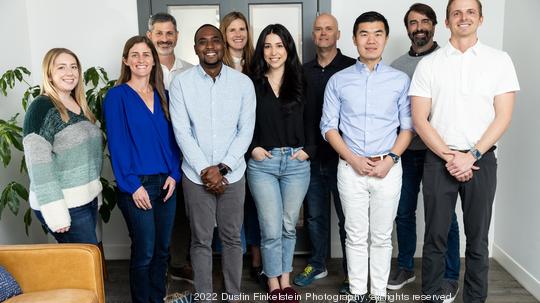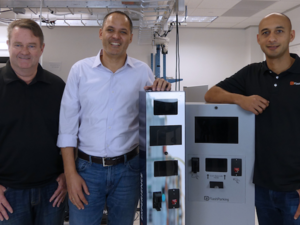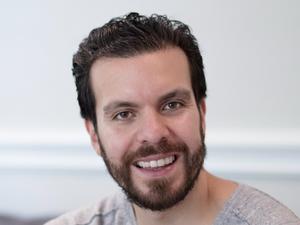
When Next Coast Ventures LLC launched seven years ago, it was among a handful of early-stage firms actively investing in Austin startups. At the time, many founders and leaders in the startup scene felt like there wasn't enough local capital available to bolster the growing density of nascent companies. On the other side, many blustered that there simply weren't enough big ideas being pitched.
A lot has changed in less than a decade.
"For entrepreneurs, the amount of capital, the diversity of capital in terms of sources, and then, for us, the quality of entrepreneurs and executive talent that's here, have all gone up exponentially," said Mike Smerklo, co-founder and managing director at Next Coast. "Even though there are a lot more firms and a lot more capital, the quality of entrepreneurs, the quality of the deal flow and the volume of deal flow is dramatically bigger and better. And I think that's good for everybody."
Next Coast is poised to help the local startup scene boom even more. On March 29, it announced it has raised $310 million across three new investment funds, which are fueled by investments from unnamed university endowments, pension funds and other sources. The new war chest comes more than two years after Next Coast raised a $130 million second fund.
The biggest chunk of the new money, $195 million, is dedicated to what Next Coast has been doing for years: investing in early-stage tech startups. Another $50 million is set aside for follow-on investments in companies it has previously backed. The final account, about $65 million, is dedicated to its Next Coast ETA program, which gives founders capital to acquire a small- to mid-sized business, or what some call a mini-special purpose acquisition company.
Next Coast typically invests $500,000 to $10 million at a time from its main fund. Its past investments have included digital heath and at-home testing startup Everly Health, which last year was valued at $2.9 billion, and Icon, which has built a 3D printer for homes and is said to be nearing a $2 billion valuation.
"What we're looking for is that classic entrepreneur who's building a disruptive business that we can then really get behind and help support with our company building playbooks," Smerklo said.
The ETA program, meanwhile, is a little different than typical VC investing.
Smerklo himself used a similar method to create one of his biggest successes.
He got funding in 2003 to purchase 30-person tech services startup ServiceSource. After more than a decade, he grew the business into a 3,000-person publicly traded company.
The mini-SPACs often give an entrepreneur with a proven track record $8 million to $10 million to purchase a business, with perhaps 10% to 20% of that coming from Next Coast. Then the founder hunts for the right opportunity.
Next Coast ETA's portfolio includes 26 search fund investments and eight company investments.
The firm's new funds have come online at a bit of a turbulent moment for many tech companies, as the boom of pandemic investing fades and down rounds and reduced valuations become more common for once-booming startups. Smerklo acknowledged the impact, but he said that his firm is preparing founders to be pragmatic, and not overly reactive to current market fluctuations.
"I don't feel it's a moment where we have to all run for the hills," he said. "But it's real. And I think it's probably a good thing actually overall."
Smerklo said startups will have to be mindful about how inflation impacts wages, which can accelerate burn rates and force startups to consider raising capital faster than they may have initially projected.
"If you're gonna need to raise — you're gonna run out of capital in Q4 of this year, for example — you probably should be getting ready in the next month or so to get out and tell your story," he said. "And the more you can point to innovation, improvement for customers in real metrics, the better off you'll be."
And VC firms are still bringing in significant cash for investments, with S3 Ventures announcing earlier in March a $250 million seventh fund and LiveOak Venture Partners closing its third fund at $210 million.
Next Coast now has more than a half billion dollars under management. Thus far, the firm says 30% of the startups it has invested in have a diverse founder, which they define as anyone whose race is other than white, whose ethnicity is not Hispanic or Latino, is female or non binary, identifies as LGBT, and/or identifies as not regularly abled.
Pitchbook reported that in 2021, companies founded solely by women secured 2.1% of the total capital invested in venture-backed startups in the U.S. Meanwhile, Crunchbase data showed that the share of U.S. venture capital going to Black-founded companies was about 3% of 2020’s overall deal volume.
Smerklo said that one of the solutions is to help instill an entrepreneurial mindset earlier in people's careers so that more people consider launching a new business as a viable alternative to a traditional career.
"We need more diversity in entrepreneurship, and we need more mental health around entrepreneurship," he said. "So I think we can always do better."







